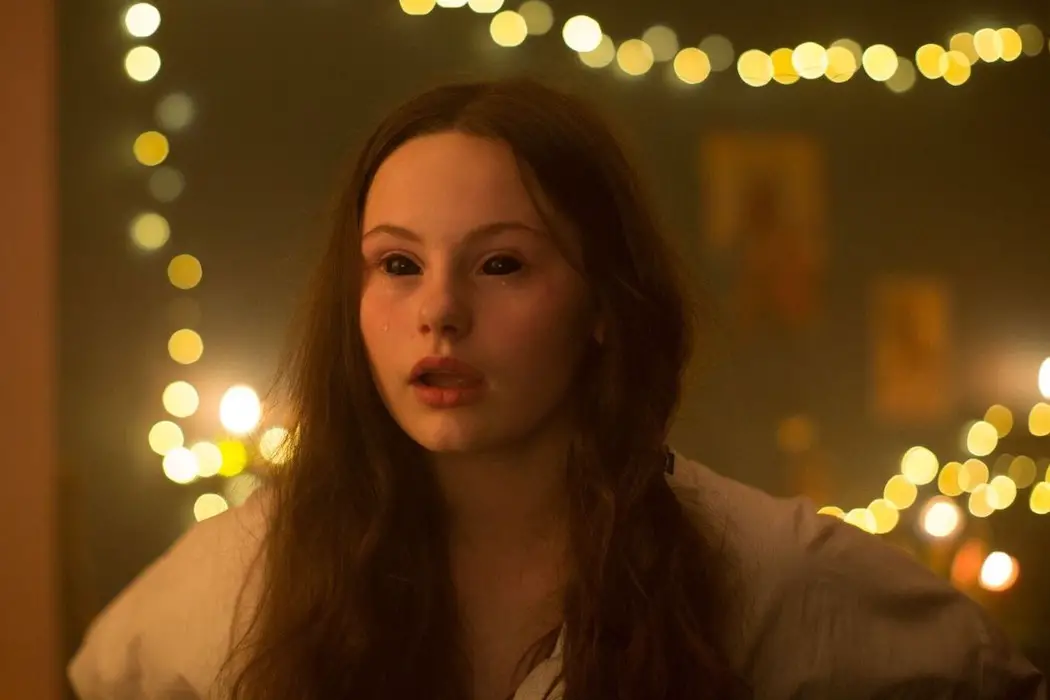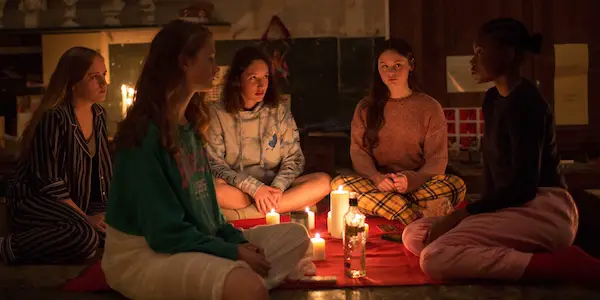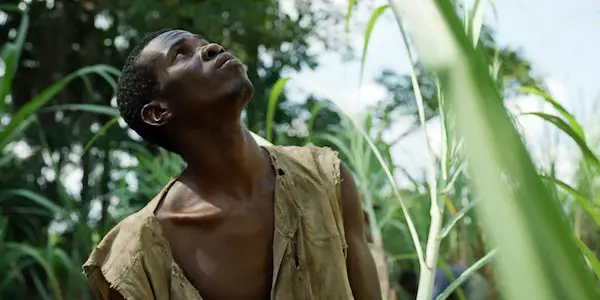ZOMBI CHILD: An Eerily Gorgeous Reclamation Of The Soul

Movie lover & Los Angeles-based writer. BA in Film Criticism…
While French director Bertrand Bonello has enjoyed a steady career over the last twenty plus years (primarily in the form of short films), this past decade has allowed him to unleash his career-best (and some of the world’s greatest) features films. First, there was 2011’s House of Tolerance (also known as House of Pleasures, depending on which part of the world it was released in), which stunningly detailed the inner-workings and relationships of a group of women employed in a 19th century Parisian brothel. It was a sumptuous triumph, characterized by a particular attention to a woozy, almost hallucinatory mood.
The greatness of House of Tolerance would later be matched by 2016’s Nocturama, a chilling procedural that followed a group of Parisian youths enacting a series of radical terrorist attacks on their unsuspecting city, and then hiding out in a shopping mall during the aftermath. Nocturama was also a thrilling success (one of that year’s finest), and with these two films, Bonello demonstrated a tremendous gift for writing his own cinematic language, showing a precise command over the craft of such wild and varied works, yielding terrific results in the process.

Which brings us to his latest film, Zombi Child. An utterly strange and at times indescribable feature, Zombi Child plays out in a much more muted affair than Bonello’s earlier works, but it is no less potent. Deftly balancing themes of race, colonialism, and vodou (the Haitian spelling of “voodoo”) across a pair of bifurcated timelines, Zombi Child can be chalked up as another striking accomplishment for Bonello, who crafts a unique and beautiful tale out of eerie and unusual parts.
Subgenre Subversions
The narrative proper begins in Haiti in the year 1962, where an insidious act is taking place. We witness the methodical slicing of a poisonous pufferfish by a set of unknown hands, whose flesh and venom are carefully placed into the footwear of a man later identified as Clairvius Narcisse (Mackenson Bijou). Clairvius soon expires from this tampering, and after his funeral is held, he is dug up the very same evening, seemingly resurrected but forced to work in the cane fields in a perpetual state of somnambulism.
The action switches over to modern-day France, where Haitian girl Mélissa (Wislanda Louimat) has just transferred into an all-girls’ school. There, she strikes up a friendship with Fanny (Louise Labeque), a white girl who inducts Mélissa into her literary sorority with her small clique of friends. However, when Mélissa begins exhibiting unusual behavior, including emitting bizarre animalistic noises in the middle of the night, Fanny becomes entranced with the world of vodou, looking to reclaim a lost lover from her past.

Granted, with a title like Zombi Child (which also maintains the proper Haitian spelling), anybody walking into this expecting a horrifying onslaught of shambling corpses with a certain craving for human flesh is bound to be sorely disappointed. The feature is more akin to Jacques Tourneur’s 1943 masterpiece, I Walked with a Zombie, returning to the sub-genre’s roots in vodou and the practice of black magic, lending a supernatural quality to the proceedings. Bonello has a distinct vision in mind with Zombi Child, one that does not readily make itself apparent to the viewer.
I Walked with a Schoolgirl
The loose structure of the film is divvied between two plot strands: Mélissa and Fanny’s time spent on campus, and the lonely odyssey of Clairvius Narcisse (a figure who is based on a real-life individual with the same name). Through the seemingly magical healing properties of the flesh from a piece chicken, Clairvius finds himself awakened from his sleepwalking daze and cognizant of the terrible situation he has been thrust in. The Haitian man’s ensuing journey home plays out almost entirely wordlessly, detailing a single man’s quest to reclaim the life that was cruelly snatched away from him.

The bulk of the proceedings follows Mélissa and Fanny’s budding friendship on the other side of the Atlantic. After inducting her newfound bestie through a surreptitious, candlelit ceremony, the pair grow close, but Mélissa’s strange behavior threatens to put a damper on their companionship. Matters are made worse with Fanny’s long-distance love interest is waning fast, forcing the poor girl to take matters into her own hands with a touch of black magic.
As with his previous efforts, Bonello’s film is beautifully shot, aided by the warm and colorful lensing of Yves Cape’s cinematography (slow-motion shots inside the girls’ locker room will invoke memories of the opening credits of Brian De Palma’s Carrie, only without the gratuitous nudity and physical abuse). Bonello also sustains a remarkably ethereal atmosphere throughout, effortlessly blending haunting, dreamlike visions with the harsh pangs of reality. Whatever the content may be in his films, you can guarantee that the tech credits will always be impeccable.
Zombi Child: Conclusion
As aloof and occasionally frustrating as the film may appear to be (even at under two hours, pacing is extremely deliberate), Bonello does guide Zombi Child to a satisfying conclusion, conjuring up the evil spirit of Baron Samedi in a terrifying climax, before quietly resolving Clairvius’ travels in an epilogue set in 1980. Few directors have been able to keep their vision fresh and excitingly varied through a multitude of unique projects, and Zombi Child, an eerie yet beautiful tale of coming-of-age and vodou, is no exception. For Bertrand Bonello, I am sincerely looking forward to anything he does next.
What do you think? Does Bonello craft an interesting tale out of familiar parts? Let us know in the comments below!
Zombi Child was released in limited theaters in the U.S. on January 24, 2020. For all international release dates, see here.
Does content like this matter to you?
Become a Member and support film journalism. Unlock access to all of Film Inquiry`s great articles. Join a community of like-minded readers who are passionate about cinema - get access to our private members Network, give back to independent filmmakers, and more.
Movie lover & Los Angeles-based writer. BA in Film Criticism & Media Theory from CSU Northridge. Unofficial Bond ally. Rhymes with “tequila.”













